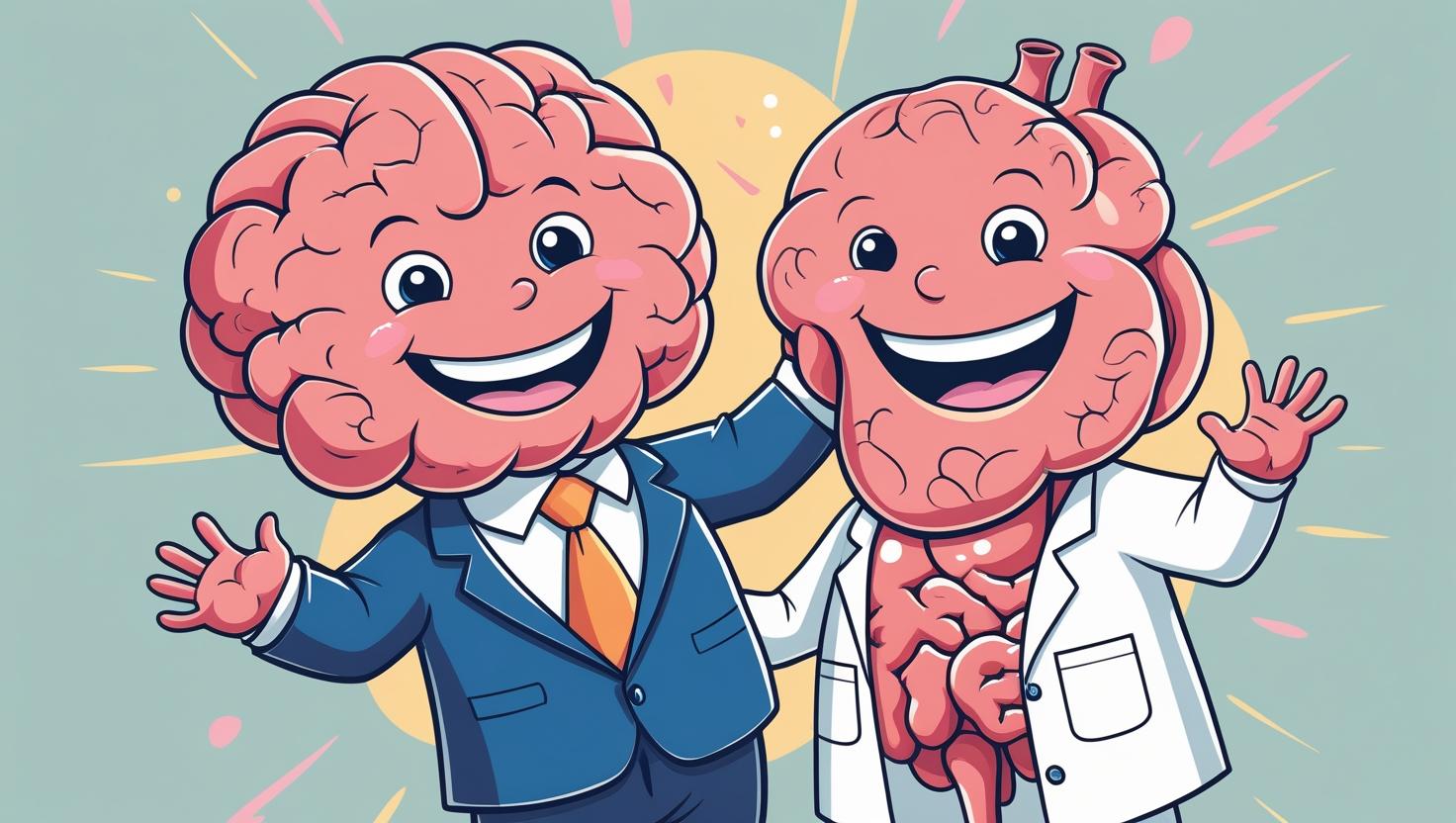
Listening to Your Gut: Why Your “Second Brain” Matters More Than You Think
That’s right… “listening to your gut” should be taken literally!
 If
you’ve
ever
had
a
“gut
feeling”
about
something,
you
might
assume
it’s
just
a
figure
of
speech.
But
science
says
otherwise—the
connection
between
your
gut
and
your
brain
is
real,
powerful,
and
constantly
influencing
your
mood,
health,
and
even
your
decisions.
If
you’ve
ever
had
a
“gut
feeling”
about
something,
you
might
assume
it’s
just
a
figure
of
speech.
But
science
says
otherwise—the
connection
between
your
gut
and
your
brain
is
real,
powerful,
and
constantly
influencing
your
mood,
health,
and
even
your
decisions.
In fact, I dedicated an entire episode of the Brain Lady Speaks podcast titled “Your Gut Health and Mood” to this fascinating topic. In it, I dig into the research on the gut-brain connection—how most of your “happy” chemicals actually start in your gut, how stress can mess up your gut bacteria, and why probiotics and fermented foods might be more important than you think.
Your Gut Really Does Have a Mind of Its Own
Ever notice your stomach seems to react to your emotions? Those butterflies before a big presentation… the sudden loss of appetite during a stressful week… or that uneasy feeling when something just “doesn’t feel right.” These aren’t random quirks—they’re signs of your gut-brain connection in action.
Scientists often call the gut the “second brain.” This isn’t just a catchy phrase. Nestled in your digestive system is an intricate network of over 100 million neurons—possibly more than in your spinal cord. This network, known as the enteric nervous system (ENS), is constantly at work. Yes, it helps digest your lunch, but it’s also sending and receiving messages from your brain through a complex, two-way communication system.
The Serotonin Surprise
 Here’s
where
it
gets
really
interesting:
your
gut
produces
about
90–95%
of
your
body’s
serotonin.
This
neurotransmitter
is
famous
for
its
role
in
mood
regulation—helping
keep
your
spirits
up
and
your
emotions
steady.
But
serotonin
is
also
essential
for
healthy
digestion.
Here’s
where
it
gets
really
interesting:
your
gut
produces
about
90–95%
of
your
body’s
serotonin.
This
neurotransmitter
is
famous
for
its
role
in
mood
regulation—helping
keep
your
spirits
up
and
your
emotions
steady.
But
serotonin
is
also
essential
for
healthy
digestion.
While most serotonin stays in the gut to manage digestion, the constant communication between your ENS and your brain means gut health can have a big influence on how you feel emotionally. If your gut isn’t healthy, your serotonin production may suffer—and so can your mood.
How Stress Can Disrupt the Gut-Brain Balance
Stress doesn’t just affect your mind—it can change your gut microbiota, the community of trillions of bacteria that live in your digestive tract. When chronic stress tips the balance toward harmful bacteria, it can spark a chain reaction:
- Gut inflammation
- Digestive issues
- Disrupted neurotransmitter production
- Increased feelings of anxiety or depression
This creates a loop where poor gut health fuels stress, and stress further damages gut health.
Supporting Your “Second Brain”
 The
good
news?
You
can
take
steps
to
strengthen
and
support
this
vital
gut-brain
partnership.
Consider:
The
good
news?
You
can
take
steps
to
strengthen
and
support
this
vital
gut-brain
partnership.
Consider:
- Eating a gut-friendly diet rich in fiber, colorful vegetables, and fermented foods like yogurt, sauerkraut, or kimchi.
- Managing stress through breathing exercises, mindfulness, or even a quick daily walk.
- Exploring probiotics to help restore healthy bacteria balance (though it’s wise to consult with a healthcare professional first).
When your gut is healthy, it’s better equipped to produce the neurotransmitters that help you feel calm, focused, and balanced.
So, next time you get a gut feeling, remember—it’s more than intuition. It’s your “second brain” sending you a message. And the healthier you keep it, the better it can help you thrive—both physically and mentally.
-Julie "Brain Lady" Anderson

